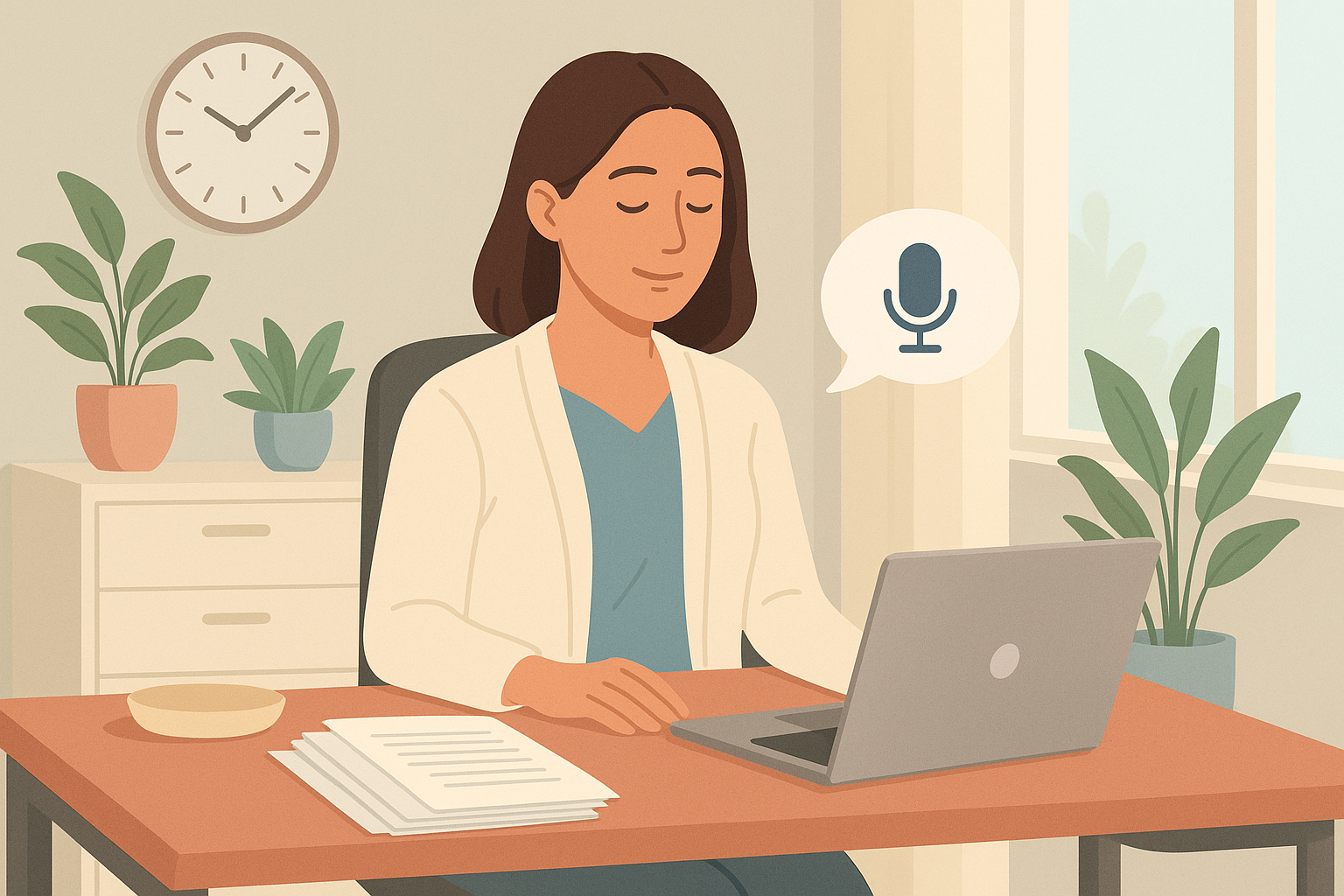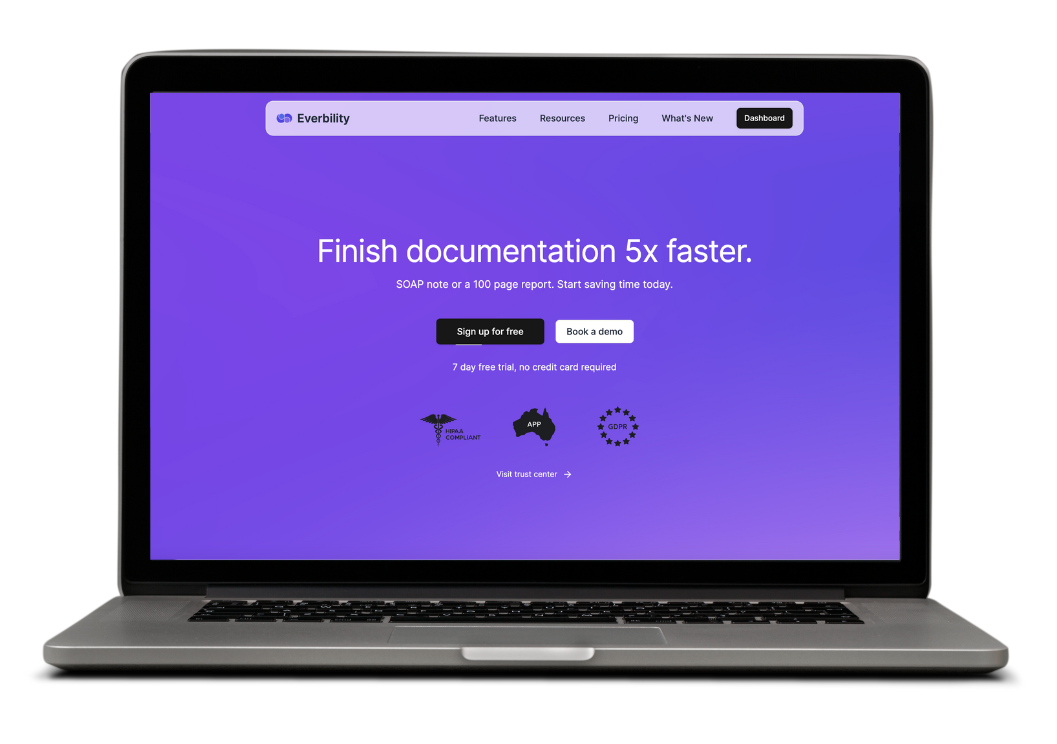- Published on
The Ultimate Guide to Therapy Documentation
- Authors
- Name
- Bella Martini

Introduction
- Why Good Documentation Matters
- Types of Therapy Notes
- How Much Time Should Documentation Take?
- Common Therapist Documentation Mistakes
- 5 Tips to Streamline Documentation
- How Tech Can Help
- A Note on Everbility
- Final Thoughts
If you're a private practice therapist, you already know how important documentation is.
It's the backbone of ethical practice, the key to clinical clarity, and often a required part of compliance and reimbursement.
But let's be honest: documentation can also feel like a huge time-suck.
In this guide, we’ll break down how to create effective, efficient, and compliant therapy documentation without it taking over your evenings and weekends. Whether you’re a seasoned psychologist, a new graduate speech pathologist who is just starting your practice, or an occupational therapist who is mid-career, this resource is designed to help you streamline your workflow and improve your note-taking process.
Why Good Documentation Matters
Therapy notes serve multiple purposes. They:
- Provide a legal record of the services you offer
- Help track client progress over time
- Support continuity of care
- Meet ethical and insurance requirements
- Protect you and your clients in the event of legal scrutiny
Incomplete or unclear notes can result in lost revenue, increased liability, and weaker clinical outcomes. Solid documentation is not just about checking a box. It's about ensuring quality care.
Types of Therapy Notes
There are several common formats therapists use to document sessions. The key is consistency.
- SOAP Notes: Subjective, Objective, Assessment, and Plan. A structured format ideal for clinical settings.
- DAP Notes: Data, Assessment, Plan. A more narrative style often used in social work.
- Progress Notes: General session overviews that track what occurred and any movement toward goals.
- Intake Notes: Detailed initial assessments including background, presenting issues, and treatment goals.
Each format serves a different purpose, but all should include relevant clinical observations, client quotes or behaviors, assessments, and next steps.
How Much Time Should Documentation Take?
Most therapists aim to spend no more than 5 to 10 minutes per note. If you're routinely spending 20 or more, there's likely room to tighten up your process.
Common Therapist Documentation Mistakes
Here are some red flags to watch out for:
- Over-documenting: Writing a novel for each session can lead to burnout and may violate client privacy if notes contain unnecessary details.
- Under-documenting: Too brief or vague, which could hurt you in audits or legal matters.
- Waiting too long: If you're documenting days later, accuracy suffers.
- Inconsistent formatting: This makes it harder to track progress and can be confusing if you share notes with other professionals.
5 Tips to Streamline Documentation
- Use templates: Having a set format you can use repeatedly cuts down on decision fatigue.
- Create client summaries: Maintain a short document with goals, diagnoses, and key points so you’re not searching back through notes every time.
- Block time for notes: Set aside 15 to 30 minutes after sessions to stay on top of admin.
- Voice-to-text tools: These can be especially helpful if you process thoughts more clearly by speaking.
- Set time limits: Give yourself 7 to 10 minutes per note. If you go over, review what’s taking so long.
How Tech Can Help
Documentation software can shave hours off your admin time every week. Look for tools that:
- Offer secure cloud-based storage
- Include templates for SOAP, DAP, and other note types
- Auto-populate repetitive fields like date, client name, and goals
- Allow you to search and organize client records easily
- Provide compliance support for GDPR and other regulations
Some AI tools can even draft session summaries based on your spoken input or quick bullet points. That means less typing and more clinical time.

A Note on Everbility
If you're exploring AI-powered solutions, Everbility is a note-taking assistant designed specifically for allied health professionals. It uses speech-to-text transcription and therapist-friendly templates to generate draft notes in minutes. You stay in control, but the heavy lifting is done for you.
Therapists who use smart documentation tools often report:
- Less after-hours work
- Fewer late or missed notes
- Better client recall between sessions
- Increased feelings of professional control
Final Thoughts
Therapy documentation does not have to be exhausting. With the right systems and strategies, it can become a seamless part of your workflow. Whether you're still writing your notes by hand or already exploring digital tools, take time this week to review your process.
Consider asking yourself: Is it working for me, or am I working for it?
Because your time and energy are too valuable to be spent chasing paperwork.
Want to see how Everbility works in action?
Click here to book a demo and we’ll walk you through it.